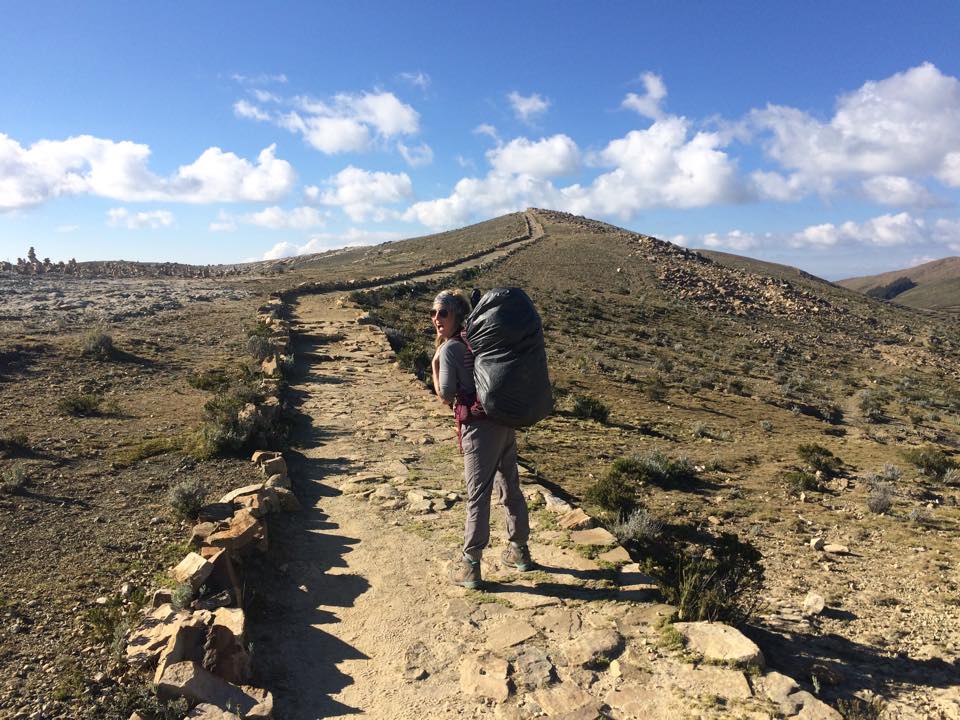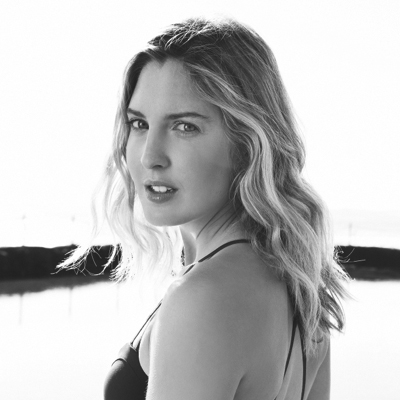Can you cut 1 Tonne of carbon pollution out of your life?
Take the challengeWHETHER YOU’RE READING THIS FROM A HOSTEL OR THE COMFORT OF YOUR HOME, THERE ARE LESSONS TO LEARN FROM OTHER PEOPLE’S TRAVELS, SAYS AUTHOR AND DIGITAL NOMAD, AMY MOLLOY.
There is grace in taking
Before we left Australia for a four-month tour of South America, my fiancé and I brainstormed gifts that we could give local families (bouncy balls, unwrapped lollies, biodegradable tampons). I imagined the sense of fulfilment I'd feel bringing joy to children in tiny Peruvian villages. But, I had more to learn about the art of taking than giving.
From the Bolivian father at the border crossing who shared his bag of chocolates whilst we waited to have our forms stamped, to the elderly woman who wrapped her shawl around my bare arms and muttered "frio" (translation: "cold"). When I had to cancel a hiking tour because I got food poisoning, the tour owner turned up at our hostel with a bowlful of chicken soup his wife made for me. My instinct was to insist, "No, no, I can't take it." We were meant to be the givers! It was a huge lesson in humility to realise that kindness is a flowing circle. At some point you also need to be the (graceful) recipient.
A bad day doesn't mean a bad trip
I remember sitting on a bed in a hostel in Bolivia sobbing my heart out, totally inconsolable. "I want to go hoooome," I wailed, "What am I doing here?" If took a snapshot of just that moment you'd think I was having the trip from hell. In reality, I was just exhausted. We'd just come off a 16-hour bus ride – our third long haul journey that week. We hadn't eaten properly for days (see point 3) and I had a looming deadline hanging over my head. The next day after sleep, a feed and a pep talk I felt immediately better. More importantly, I had to learn to let that moment go and not only forgive myself for my "weakness" but also realise that one bad day didn't mean a bad trip. It just meant that I was human.

What really has value?
Do you want to talk about my backpack? No? But come on, it's really impressive! My fiancé and I spend an inordinate amount of time discussing, debating and comparing our packing strategies. I opt for an Osprey 50 litre Aura. He has an Eberlestock army pack (feel free to tweet me for more details – please!)
But, although those vessels hold your entire world, you also have to love them without becoming attached to them. In any country, you hear will stories of backpackers who've had everything stolen. How do you deal with this? Prepare for the worst and hope for the best. As long as we had photocopies of our passports, a credit card and a hard-drive with our photographs, which we kept in a smaller pack that never left our bodies, we could cope with losing all of our other possessions. In the top of that small backpack, I also pinned a small piece of my childhood comfort blanket (really!) because if everything else went walkabout I would need some self-soothing.
Don't judge too quickly
On a four day hike from Cusco in Peru to Machu Picchu, we slept overnight in a tiny three-family village in the mountains. To get to our hosts house we had to step over a ditch, which was totally full of rubbish, chip wrappers and plastic bottles. I'm not proud to say I had a moment of absolute judgement. How could they be so unconscious? Then I looked around and realised we were in the middle of the mountains, 30miles from the closest road, let alone any recycling facility. Back home in Sydney, my flatmates and I complained if we had to walk to the back garden to empty the compost bin!
The other important question is – what percentage of that single-use plastic comes from the locals and what percentage is hiked in by tourists?
During our trip, I was reminded of the importance of taking small, sustainable steps within your control. Whether it was the eco-lodge owner who stuffed his cushion covers with chip wrappers or the hostels who upcycled all their furniture, sometimes due to geographical location you can only do what you can.
Reign in your rants
What sort of energy do you want to put out into the world? What imprint do you want to leave behind you? Of course, this is important whether at home or away but I definitely was more conscious of the message I was sending out into the world when we were travelling. On a daily basis we were emotionally challenged and faced a crossroads when it came to how we reacted. If a bus was two hours late would we be the tourists complaining and ranting because of the inconvenience. Or would we accept and appreciate that we were in a country with unique challenges, wait with patience and thank the bus driver when he eventually did arrive. It also helped our own emotional wellbeing to not carry that toxic energy. Who wants to hang with a complainer? Especially if it's your own internal monologue! DISCLAIMER: I didn't always get this right. To the hostel owner who I whined at because our toilet didn't have a door. I'm sorry, I was having a bad day (see point #2)
Amy Molloy is a journalist, author and ghost-writer who splits her time between London and Sydney. As a #digitalnomad, you'll usually find her anywhere but at a desk...
Follow Amy on Twitter or Instagram @amy_molloy.
READ THIS NEXT: Five ways to start leading a low-carbon-lifestyle
What lessons have you learnt on the road? Let us know in the comments section below

